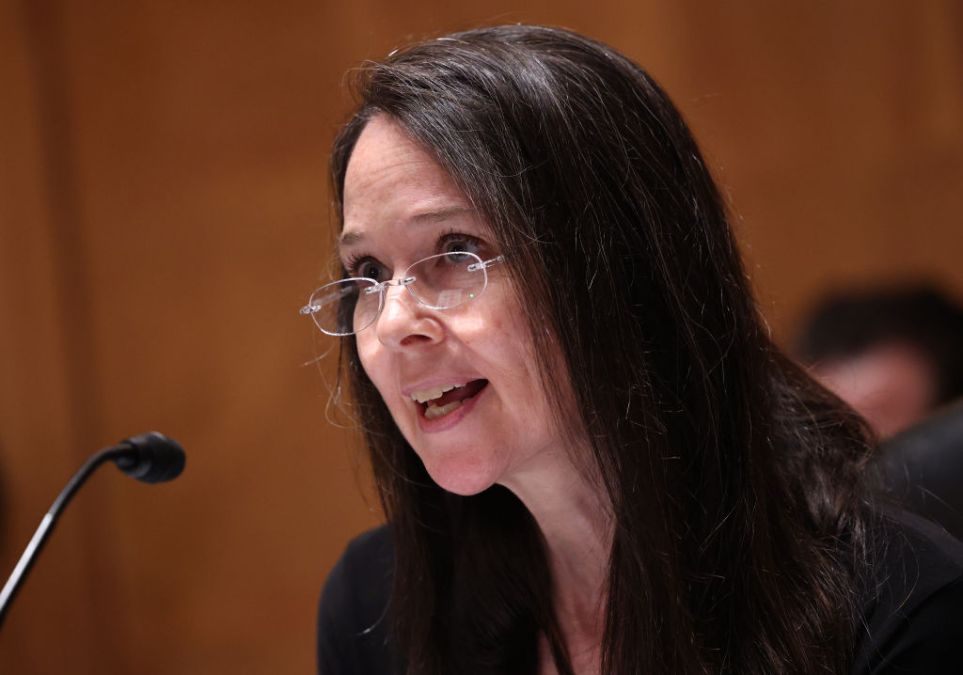CISA director unveils cyber defense collaborative center for pre-attack planning

Cybersecurity and Infrastructure Security Director Jen Easterly announced the launch of a cyber defense center Thursday that will seek to foster collaboration before cyberattacks, rather than afterward, between federal agencies, the private sector and state and local governments.
Speaking at the Black Hat security conference in Las Vegas in one of her first public appearances since the Senate confirmed her last month to lead the Department of Homeland Security’s cyber wing, Easterly said the Joint Cyber Defense Collaborative (JCDC) would try to enhance teamwork that often happens only after a major incident, such as the past year’s high-profile attacks on companies like SolarWinds or Kaseya.
“While some of this work is happening in pockets, most of it is reactive,” Easterly said in prepared remarks. “The unique value add of the JCDC is to create a proactive capability for government and private sector to work together closely before an incident occurs to strengthen the connective tissue and ensure a common understanding of processes.”
Its job will be to look forward with tasks like developing comprehensive cyber defense plans and joint exercises, she said.
Several companies have already signed on to help build the center: Amazon Web Services, AT&T, Crowdstrike, FireEye Mandiant, Google Cloud, Lumen, Microsoft, Palo Alto Networks and Verizon.
It would not be the first effort to focus on harmonizing industry and government on cybersecurity, Easterly acknowledged.
“We all know that phrases like ‘public-private partnership’ and ‘info-sharing’ have become hackneyed bumper stickers,” she said. “My goal is to ensure that new life is breathed into them, to turn public-private partnership into public private operational collaboration, and information sharing into something that is always timely, relevant, and most importantly, actionable — able to be used by a network defender to help increase the security and resilience of their networks.”
The initiative is the latest to stem from the Cyberspace Solarium Commission to be embraced by a newly-appointed member of the Biden administration. Last week, former commission member and now-National Cyber Director Chris Inglis endorsed the creation of a bureau of cyber statistics.
Easterly’s speech served not just as a vehicle for announcing the collaborative center, but introducing herself to a vital audience and appealing to them for assistance. She asked attendees to help build the cybersecurity workforce and consider joining CISA.
Easterly traced back a career of trying to solve puzzles from helping erect U.S. Cyber Command, to her work after the Sept. 11, 2001 terrorist attacks and all the way to a childhood obsessed with the Rubik’s Cube. At age 11, she would challenge store clerks to give her a free cube if she could solve it within two minutes.
“Now these days, you can go on the internet and see a YouTube video of a 2-year-old solving the cube in 11.2 seconds with her feet, but back then, it was a pretty big deal to solve the puzzle,” she said.
She called imagination the “magic fuel” for solving problems.
“Imagination brings us innovation. Imagination enables resilience,” Easterly said. “Imagination makes us better leaders. Imagination makes us better problem solvers. Imagination makes better hackers.”






